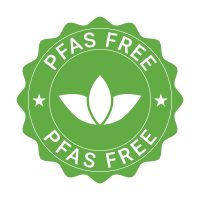New York’s Expanding PFAS Bans

Poly- and perfluoroalkyl (PFAS) chemicals have become the new hot-button environmental contamination issue. Also known as “forever chemicals” because they degrade very slowly, PFAS have been connected to a number of alleged health risks. PFAS have been used for decades to manufacture everything from clothing to non-stick cookware.
We previously discussed the rise in private and state-led PFAS lawsuits alleging environmental contamination and toxic exposure. New York’s lawmakers have bent to the pressure campaign and are enacting several anti-PFAS laws. Manufacturers and distributors of products containing PFAS must be vigilant of potential liabilities associated with the chemicals. Continue reading to learn about the new PFAS laws, and if you are dealing with civil claims or state enforcement actions regarding PFAS or other chemical exposure, call a dedicated New York toxic tort defense attorney for advice and representation.
Ban on PFAS in Food Packaging
Title 2 of New York’s Environmental Conservation law pertains to public health and safety concerns with regard to food packaging. The law already addresses the presence of heavy metals in product packaging due to the risk of chemical exposure when the packaging is incinerated or otherwise disposed. Manufacturers and distributors have been limited to certain metal concentration levels in packaging since at least 1994.
Effective December 31, 2022, the statute was expanded to address the presence of PFAS. According to the new rule, no person “shall distribute, sell or offer for sale in this state
food packaging containing [PFAS] substances as intentionally added chemicals.” The law applies to manufacturers as well as food sellers, although sellers can rely on certificates of compliance from packaging suppliers and other manufacturers.
State officials justify the prohibition with research indicating that PFAS in food packaging can migrate to the food products contained within, as well as to landfills and compost upon disposal. Compost from composting factories is used, in turn, to fertilize agricultural products that may be ultimately used for human consumption.
For the purposes of food packaging, PFAS is defined as “a class of fluorinated organic chemicals containing at least one fully fluorinated carbon atom.” In order for PFAS to be “intentionally added,” it must be “a chemical in a product that serves an intended function in the product component.” PFAS used in the manufacturing process but not in the ultimate product, for example, might not run afoul of the ban, but New York health and environmental protection agencies disfavor the use of PFAS even in the manufacturing process.
Ban on PFAS in Clothing
On December 22, 2023, Gov. Hochul signed into law a bill that prohibits the sale of any apparel manufactured with PFAS statewide. Effective December 31, 2023, “no person shall sell or offer for sale in this state any apparel containing perfluoroalkyl and polyfluoroalkyl substances as intentionally added chemicals.”
As with the ban on PFAS in food products, “intentionally added” is defined as “a chemical in a product that serves an intended function in the product component.” “Apparel” is widely defined to include “clothing items intended for regular wear or formal occasions” such as “undergarments, shirts, pants,” etc., but explicitly does not include “professional uniforms or outerwear.”
Apparel manufacturers will have their work cut out for them to source PFAS-free materials in 12 short months. The law also calls on the state Department of Environmental Conservation to set a threshold for PFAS, including unintentionally added chemicals, by 2027. Manufacturers of other consumer products can likely expect similar bans in the near future. All product manufacturers must be wary of regulatory fines and penalties as well as possible toxic exposure and product liability claims should unacceptable levels of PFAS be found in their products.
For dedicated, secure legal guidance on a New York insurance defense, toxic tort, or products liability claim, contact the Islip offices of Richard A. Fogel at 516-721-7161.
